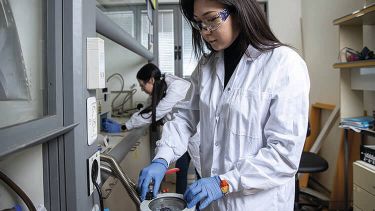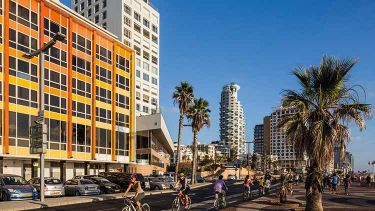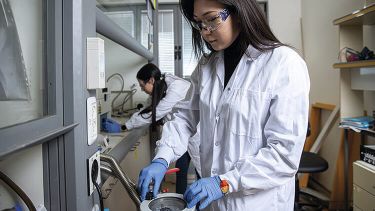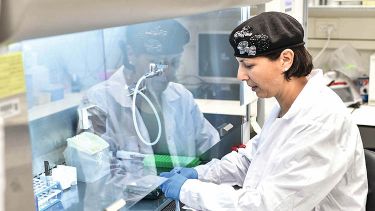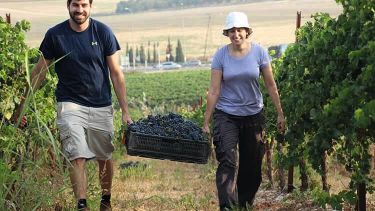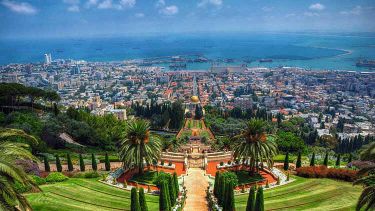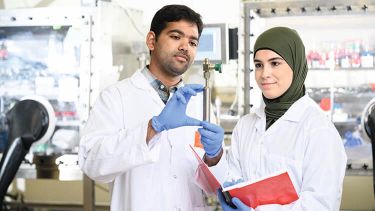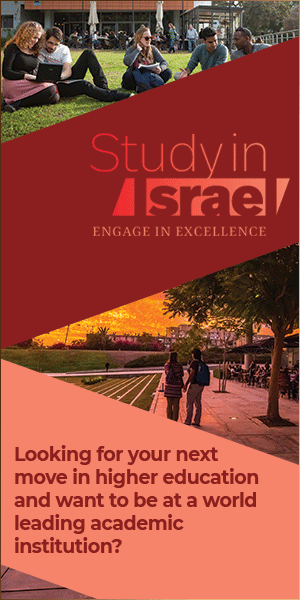
From Israel’s first student-run venture capital fund to its first Innovation District, Ben-Gurion University is the growth engine of a thriving ecosystem
One of the main roles of universities is to prepare students for the day they graduate, providing them with the skills they will need to remain flexible and adaptable in various situations.
BGU sees entrepreneurship as essential to these fast-paced and challenging times, when many of us are required to adjust to changes, re-invent our talents and rapidly implement the
ever-changing technology around us.
Through the Yazamut 360 entrepreneurship center, the university boasts Israel’s first student- run venture capital fund, Cactus Capital: founded by the BGU administration, it backs students and recent graduates on their path to tech and social entrepreneurship, while cultivating the next generation of student investors. As part of this project, students undergo training on how to become venture capitalists before seeking investments on campus. Outstanding student entrepreneurs then receive the resources they need to grow their endeavors from BGU as well as an early-stage investment of up to $20,000.
Meanwhile, the Advanced Technologies Park - a joint venture between the university and the local municipality - maximises the open flow of ideas between academia and industry. Situated across the main campus, the project allows university students, researchers and alumni to work with some of the most exciting multinational companies, start-ups and accelerators.
Israel’s first Innovation District
When Be’er-Sheva was selected to plan Israel’s first Innovation District, it was no surprise that BGU - with its impressive background in innovation and ties to the local community - was chosen to be one of the new area’s central components. The plan is for the new District to become a bustling center for commerce, community building, creative development and technological advancement.
BGU was also chosen due to its international leadership in desertification research and the development of strategies to provide food, water and energy in the world’s resource-scarce areas. Benny Dreyfuss, director general of the Ministry of Construction and Housing, says: “The next stage following the launch will focus on initial economic investments in fields such as digital health, desertification and cyber-security.”
Dr Sarah Abu-Kaf
It was Dr Sarah Abu-Kaf’s experience of growing up in a Bedouin community that would shape her career path.
As a young woman, she had little hope of receiving a higher education. “The university was a short drive from my house, but it might
as well have been light years away,” she recalls. “Higher education was perceived as impossible in my society.” But her husband, who had studied at BGU, encouraged her, and in 1994 she was accepted to the psychology and economics programs.
“I think there were just five Bedouin women students at the time,” she says.
Dr Abu-Kaf soon began to see her diversity as an asset, allowing her to study her community as an insider and from an academic perspective. She completed her BA, MA and PhD at BGU and pursued postdoctoral training at Harvard University. She now researches a wide range of topics, from the adjustment to academic life by Arab students to the coping methods of Israeli spouses going through a divorce. The first clinical psychologist in a Bedouin society, she was named one of the 50 most influential women of 2018 by Forbes Israel.
“BGU began reaching out to
the Bedouin world,” she says. “I was proud to play a role in this process, helping to craft culturally appropriate ways to help bridge the gaps.” Today, there are over 500 Bedouin students at BGU, more than 80 percent of whom are women.

